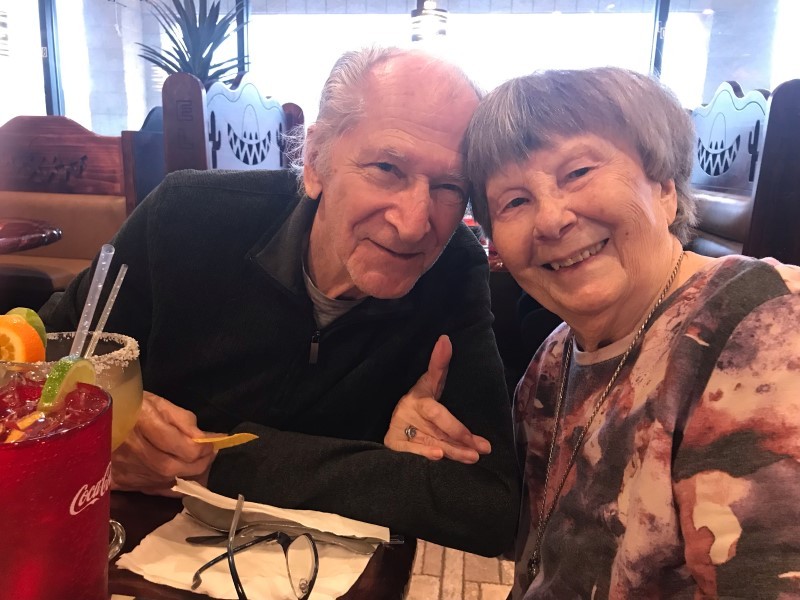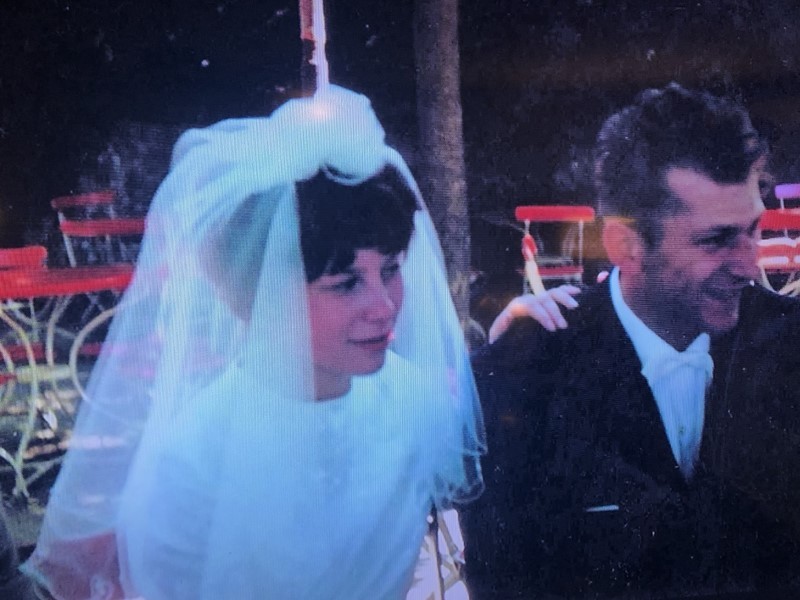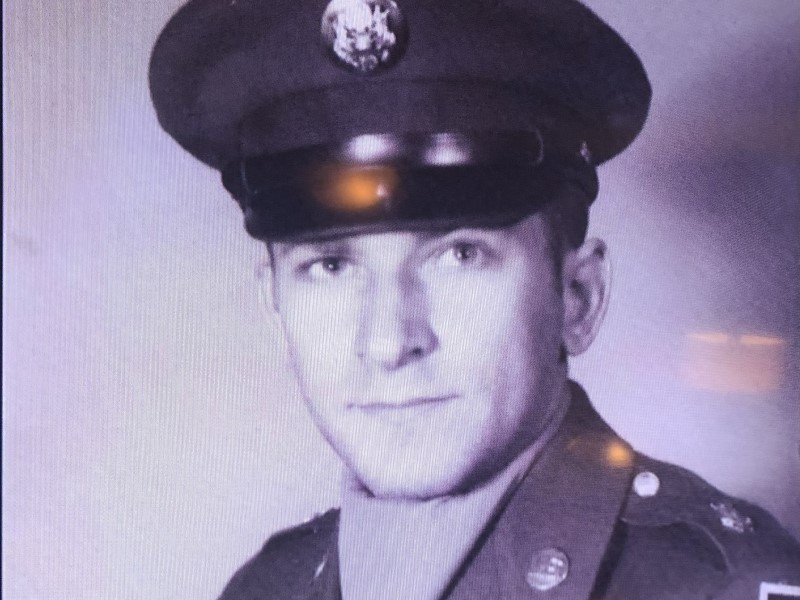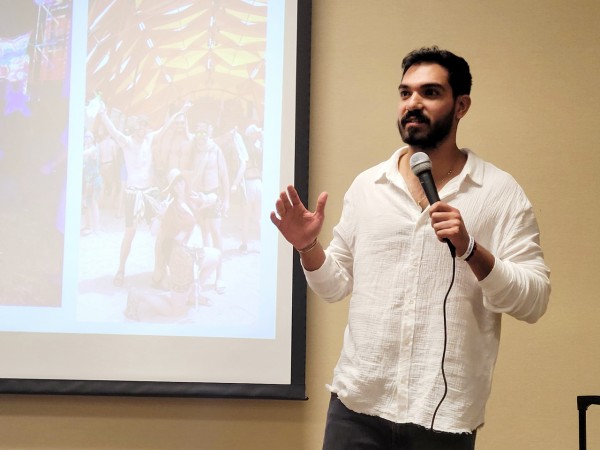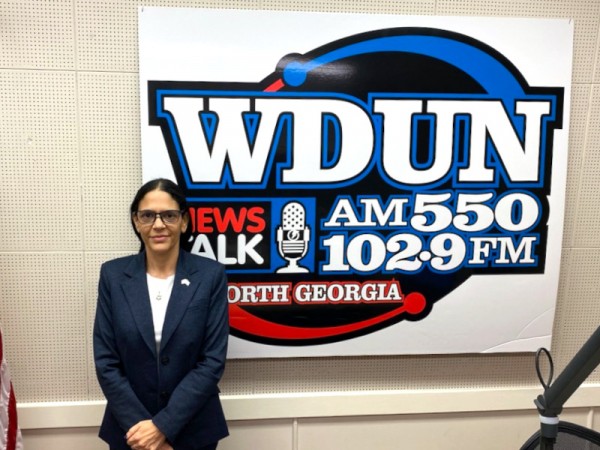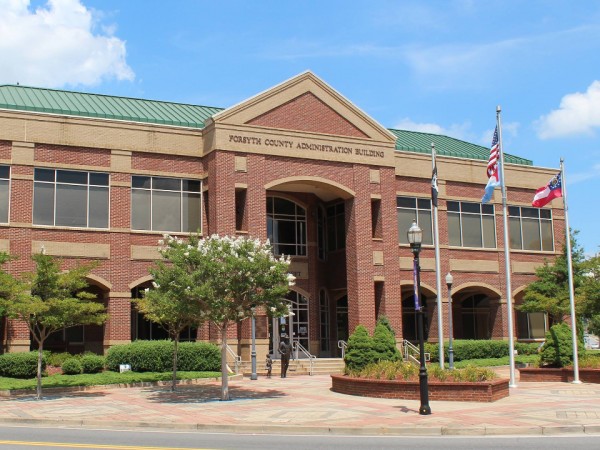A Georgia couple watches the war in Ukraine unfold with memories from their own lives shaped by conflict in Europe.
John and Annemarie Nemeth have seen a lot in their 87 years, but they continue to be horrified by the scenes from the war in Ukraine.
"I am shocked. I think it's ridiculous in the modern world," John said. "I can't understand what Putin is doing or what he's thinking."
His wife of nearly 61 years, Annemarie, echoed this sentiment. "I think in his little old criminal mind he wants to take all of rich, good Europe."
This is a couple that knows firsthand the costs of freedom. At 22, while serving as a soldier in the Hungarian military, John participated in the 1956 revolution, which aimed to overthrow the communist government and rid the country of Soviet forces.
"I hate communism; it never works," John said.
When she was 22, Annemarie fled the communist regime in East Germany for freedom in the west. "I had two suitcases, went on the train to my aunt and uncle, and left," she said.
But this was not the first time conflict touched their lives both John and Annemarie lived through WWII as young children, so they know how the millions of Ukrainian children feel.
"We grew up very fast as eight and 10-year-olds," he explained. "Especially John," Annemarie added.
The Nazis occupied Hungary toward the end of WWII before Soviet forces moved in a few months later and took over the country.
War knows no age, which means you do what is required to survive. For John, that meant, at eight years old, jumping onto a slow-moving train with two potato sacks to "steal" coal to heat the family home. "I'd throw [the sacks] from the train and take them one at a time...they were too heavy to take both at once," he described.
In addition to coal, other resources were hard to come by, like food. John recalls emerging from a shelter after an air raid and seeing a horse killed by the recent bombing. "We didn't have any meat, so I got the biggest metal pot and knife my mother had, and I started to cut it to get some meat," he said. "Before I finished, three or four other ladies were cutting the horse to get some meat home for their family."
As a young child growing up in Nazi Germany, Annemarie was sheltered from the full scale of the atrocities until after the conflict. Following the Allied victory in 1945, the Russians took over the Eastern part of Germany.
"Everybody just was scared and hid," she recalls. "I was just little and didn't understand what was really going on. All we knew was we had to hide from those Russians."
She said this marked a turning point in her country which later embraced its own form of communism. Hungary did the same thing, and eventually, students rose in the mid-1950s
At the time, John was serving his required time in the armed forces but chose to join the uprising. Much like the scenes in Ukraine, he recalls seeing ordinary citizens, including children, hurl Molotov cocktails at Russian tanks.
Despite the initial success of the revolution, Soviet forces returned and crushed the resistance. As a soldier, John was ordered back to his post, but instead, he returned home, and his father told him to flee the country. Using fake papers, he did just that and hitchhiked and walked the 100 miles to the Austrian border.
Crawling through the woods with Russian bullets whizzing past him, John recalls when he realized he'd made it, "suddenly I saw a river with a log across it, and I heard speaking that wasn't Hungarian; it was Austrian," he said. "We crossed that log to cross the river, and there were the Austrian border guards."
He came to the United States and settled in New Jersey. He found work as a dishwasher in an Italian Restaurant. He briefly attended the University of Kansas on scholarship, but the language barrier made it difficult. He enlisted in the U.S. military in 1957, and following basic training at Fort Benning, he was stationed in Wurzburg, Germany--where he met Annemarie.
She spotted him across the room at a cafe in 1960. "I saw him sitting there...my friend she wanted to sit on the other end, and I said 'let's sit there' because I thought he would never have a chance crossing all the way over here if he wants to dance with me," she said.
They married a short time later, but John's rank would not allow him to bring a family back to the states, so they made a life in West Germany. Their first daughter, Eva, was born there, and the family eventually moved to Augusta.
Eva recalls their neighbor in California was Hispanic and became friendly with her mother. "Mom started to learn English from her, so she developed a Spanish accent," she said.
John was sent to Vietnam twice, the Nemeths had another daughter, Michelle, and John retired from military service in 1979. He continued to work for Garrett Aviation in Augusta for another 19 years as a technician.
Eva described her father as a "freedom fighter" from fighting the Soviets in 1956 to the Vietcong in 1969. "I think if I were younger, male, and had no attachments, I would go to Ukraine and try to fight the Russians," she said, adding she'd do it "in his honor."
"The American People are too naive," John explained. "They don't believe the hammer is going to hit me; they think it will hit somebody else."
Annemarie has sharp words for Americans who join groups like the neo-Nazis. "Those people have no idea what it is [like] living under that rule which we experienced," she said.
John and Annemarie are appalled by the Russian actions in Ukraine, but they don't want to see the U.S. military get directly involved.
They both said they are grateful to be Americans, especially considering what they've experienced. "We live in a wonderful free land, and I thank God every day that we are here and that we live free and that our family could grow up in freedom," Annemarie said.


